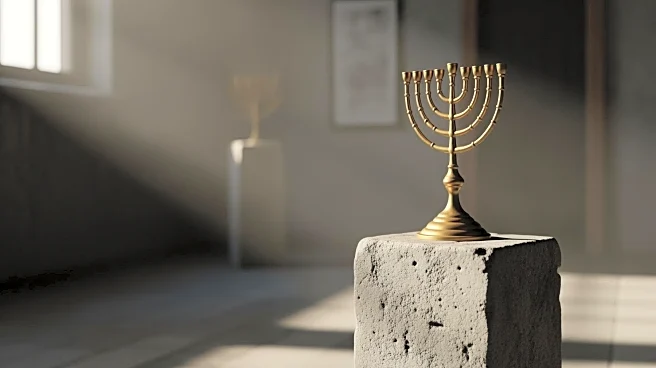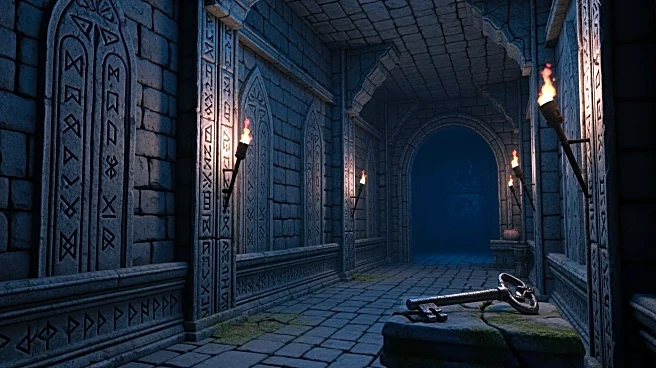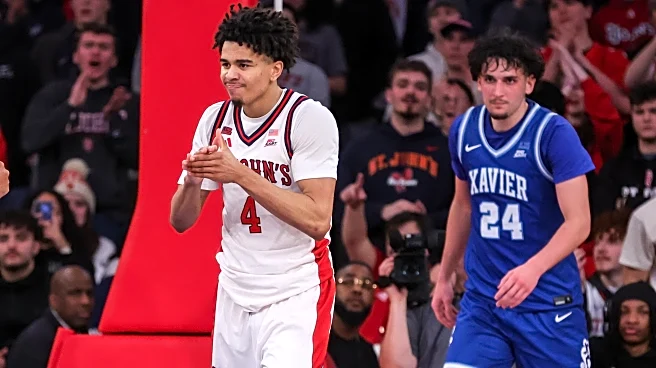What's Happening?
The story of Pawel Frenkel and the Jewish Military Union (ZZW) during the Warsaw Ghetto uprising is being revisited to correct historical narratives. Frenkel, a commander of the ZZW, played a significant
role in the uprising against German forces in 1943. The ZZW, often overshadowed by the Jewish Fighting Organization (ZOB), raised a Zionist flag alongside Poland's flag, defying German orders. Recent research has uncovered Frenkel's background, revealing his real name as Yaakov Frenkel and his involvement in military training for Betar members. The Menachem Begin Heritage Center is leading efforts to highlight the ZZW's contributions, challenging the long-held belief that the ZOB was the primary force in the uprising.
Why It's Important?
The reevaluation of the ZZW's role in the Warsaw Ghetto uprising is significant for historical accuracy and recognition of diverse contributions to Jewish resistance during World War II. The ZZW's efforts, led by Frenkel, demonstrate the complexity and bravery of Jewish fighters who resisted Nazi oppression. This narrative shift impacts how history is taught and remembered, ensuring that all groups involved in the resistance are acknowledged. It also highlights the importance of revisiting historical accounts to uncover overlooked stories, which can influence cultural memory and identity among Jewish communities and historians.
What's Next?
The Menachem Begin Heritage Center continues to promote the ZZW's legacy through seminars and research, aiming to correct historical inaccuracies. This includes efforts to commemorate Frenkel and the ZZW with public memorials and educational initiatives. The ongoing research may lead to further discoveries about the ZZW's operations and its members, potentially influencing future historical narratives and public awareness. The center's work could inspire similar initiatives to reassess other historical events and figures, fostering a broader understanding of resistance movements during the Holocaust.
Beyond the Headlines
The restoration of the ZZW's story raises ethical questions about historical representation and the narratives that dominate public consciousness. It challenges the notion of a singular narrative and emphasizes the importance of diverse perspectives in understanding history. This effort also underscores the role of historians and researchers in shaping cultural memory and the responsibility to ensure that all voices are heard. The recognition of the ZZW's contributions may lead to a reevaluation of other marginalized groups in history, promoting inclusivity and a more comprehensive understanding of past events.










